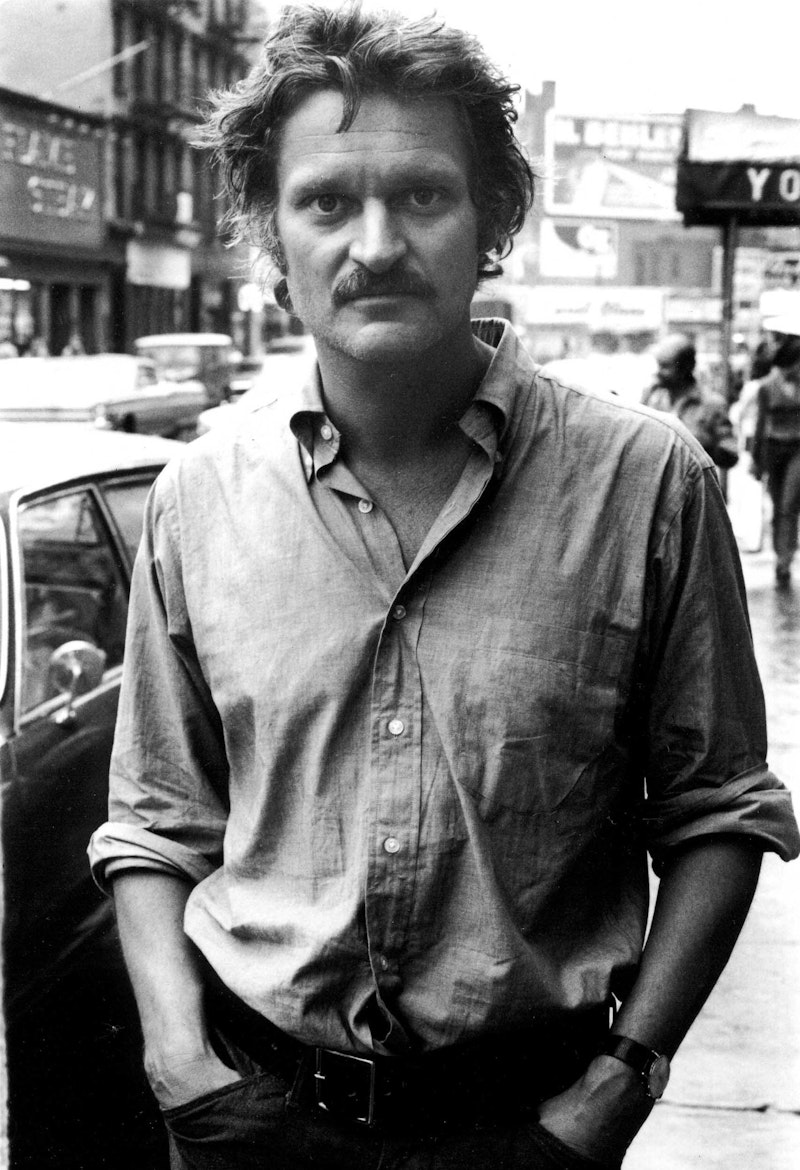The first John Ashbery poem I ever read in an anthology was “Glazunoviana,” initially published in his debut collection, Some Trees, from 1956. The poem is short, but at the time I found it impenetrable. Thirty-five years later, I can’t say it’s gotten any clearer.
Glazunoviana
The man with the red hat
And the polar bear, is he here too?
The window giving on shade,
Is that here too?
And all the little helps,
My initials in the sky,
The hay of an arctic summer night?
The bear
Drops dead in sight of the window.
Lovely tribes have just moved to the north.
In the flickering evening the martins grow denser.
Rivers of wings surround us and vast tribulation.
The poem is initially framed as a series of questions—a kind of riddle, where the clues make no sense. A man with a red hat, a polar bear, a window shade… okay.
A place to start parsing the deliberately un-parsable might be with the title. “Glazunoviana” is a reference to nationalist Russian composer Alexander Glazunov (1865-1936), head of the Petrograd/Leningrad Conservatory and teacher of (the much better-known composer) Dmitri Shostakovich.
Glazunov isn’t a household name; his anonymity, Ashbery said in a 2013 interview at The Christian Science Monitor, was part of his appeal.
I have a great love of 19th-century Russian composers, such as Arensky and Glazunov. (In my first book there’s a poem called ‘Glazunoviana.’) These minor figures I find very moving. I’ve always been envious of composers because they have the ability that poets will never have of expressing themselves without being pinned down to one particular meaning as language is. After listening to a piece of music we often feel a sense of satisfaction and understanding. Poetry aims for this as well, but it’s limited by what the words mean, whereas in music, the message is exact and intelligible but without being paraphrasable like language.
For Ashbery, the relative obscurity of the composer merges with the obscurity of the music; Glazunov is unknown, and his music is unknowable, in the sense that it doesn’t have any one meaning and doesn’t have to say any one thing. Ashbery is inspired by this example of incognito inscrutability; he wants his own poetry to be unknown music by an unknown composer, expression without meaning, unparaphrasable.
“Glazunoviana,” is an exercise in escaping meaning rather than in meaning making. Glazunov isn’t so much a subject as a symbol of subject-lessness. The composer’s Russianness is perhaps nodded to in the red hat (Glazunov continued to work and compose in Soviet Russia after the revolution) and the “polar bear,” since Russia was sometimes represented by a bear.
But the perhaps is important since the existence of the man, the hat, and the bear are all in question—as is the “window giving on shade” through which we see them. The composer and the person looking at the composer vanish and waver as soon as they are mentioned—as do Ashbery’s initials which may or may not be inscribed in the sky on an arctic summer night (another poem in the collection is titled “Little J.A. In a Prospect of Flowers”).
The second stanza abandons the question marks, but it’s still short on answers. The bear, which may or may not be there, falls over dead “in sight of the window” which also may not be there.
The poem ends with “tribes” moving north into a flickering evening overwhelmed by flocks of birds—an image that might nod to an orchestral crescendo. The poem ends with “vast tribulation”—an echoing, whirring uncertainty.
Ashbery might be recording images suggested to him by listening to Glazunov. Or he could be trying to compose like Glazunov, offering expression without narrative or sense. Or the poem could be about his inability to be Glazunov because poetry can’t be music—he tries to speak nonsense, but then has to keep running from it, or killing it off in frustration as the images attract a narrative he’s trying to avoid or forswear. The “vast tribulation” in that case, may be the poem’s frustration with its inescapable denotation, as it tries to sink into pure sound or feeling and keeps getting stuck with images—the river of wings that whelms and whelms but still flutters with wing-ness.
Ashbery’s elegiac sadness is always more than a little tongue in cheek. If he’s yearning to move beyond meaning, he’s also enjoying the shell game with meaning—the way that the meaning here is meaninglessness, and the way the meaninglessness becomes a king of meaning. The man with the red hat and the polar bear pop up and drop dead; the entire sky turns into John Ashbery himself, the God of this little non-world created in this little non-parable, who instantly loses himself in a haystack. If you think it’s silly for Ashbery to dream of being a nonentity Russian composer, then you’re in good company, because Ashbery thinks it’s silly too.
It's worth noting that Ashbery, in addition to being a fan of Glazunov, has also expressed admiration for Edward Lear, and wrote a poem with a title filched from one of Lear’s inimitable lines. (“The dong with the luminous nose.”) A poem like “Glazunoviana” isn’t meant to be pompously, hermetically opaque in the tradition of Pound. It’s meant to be delightfully opaque like Lewis Carroll or a children’s jingle. The man with the red hat disappearing; the bear falling over dramatically, the tribes going to the birds—it’s all words rushing about in vast tribulations, stirring music for laughter.

